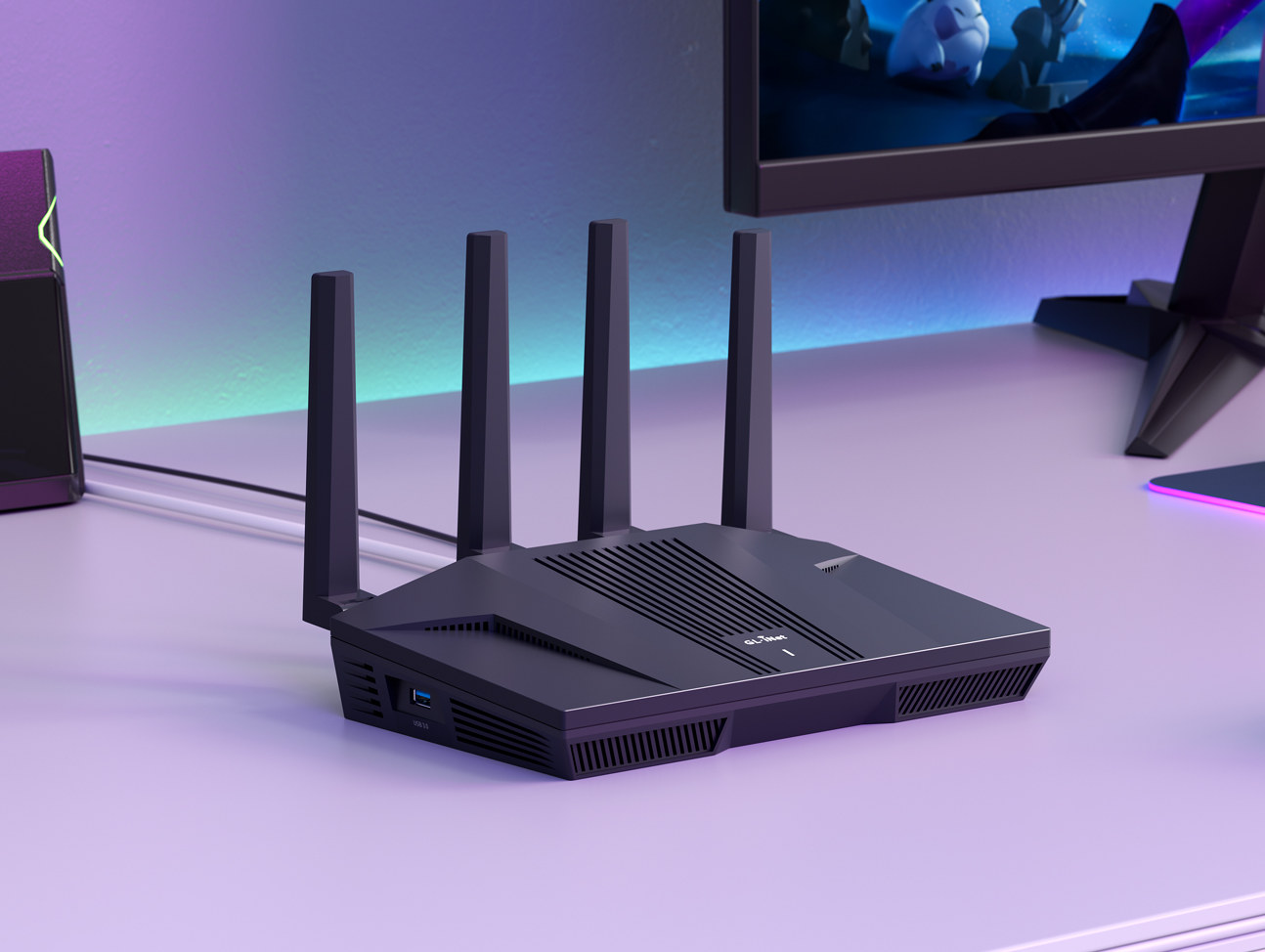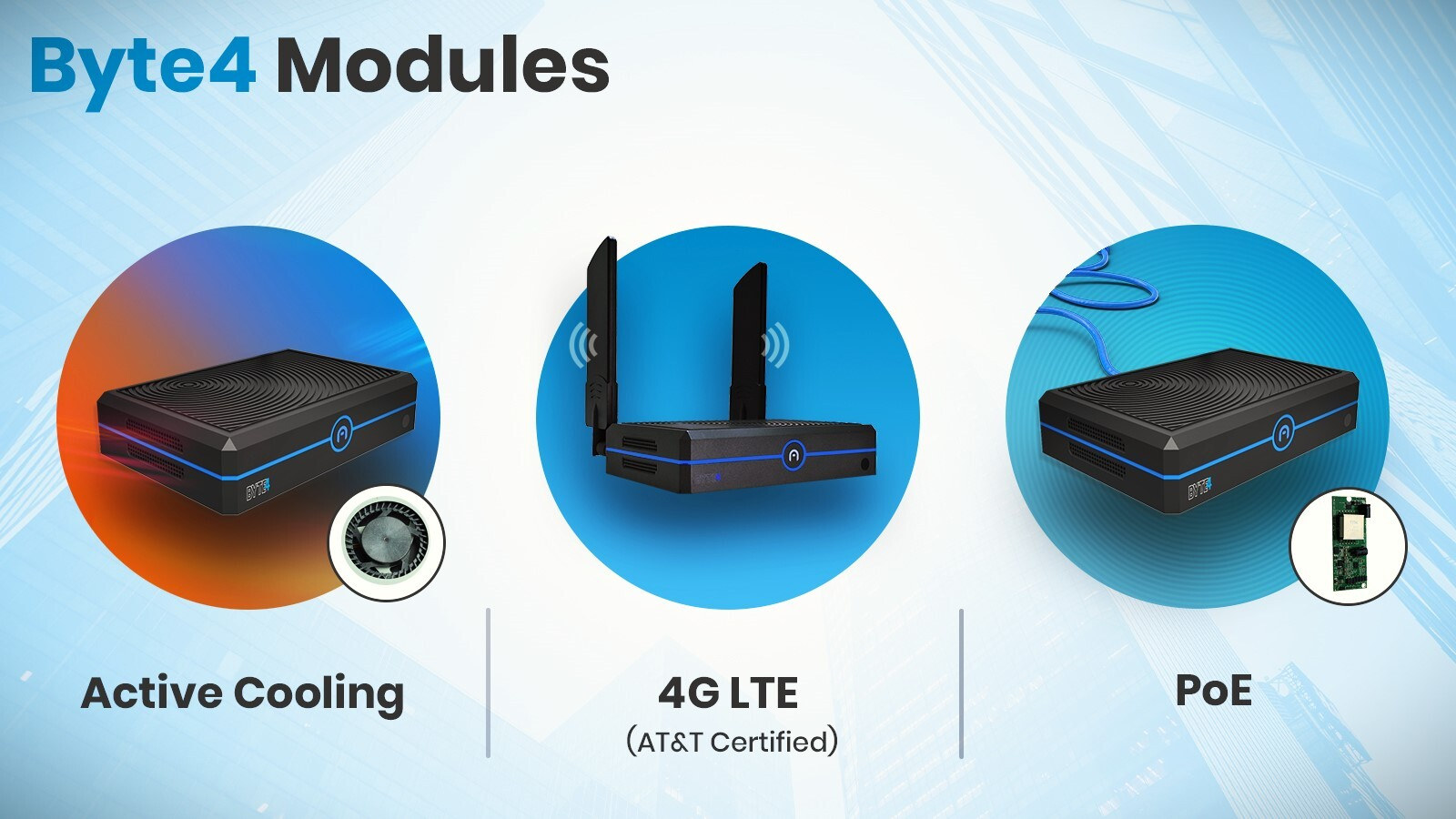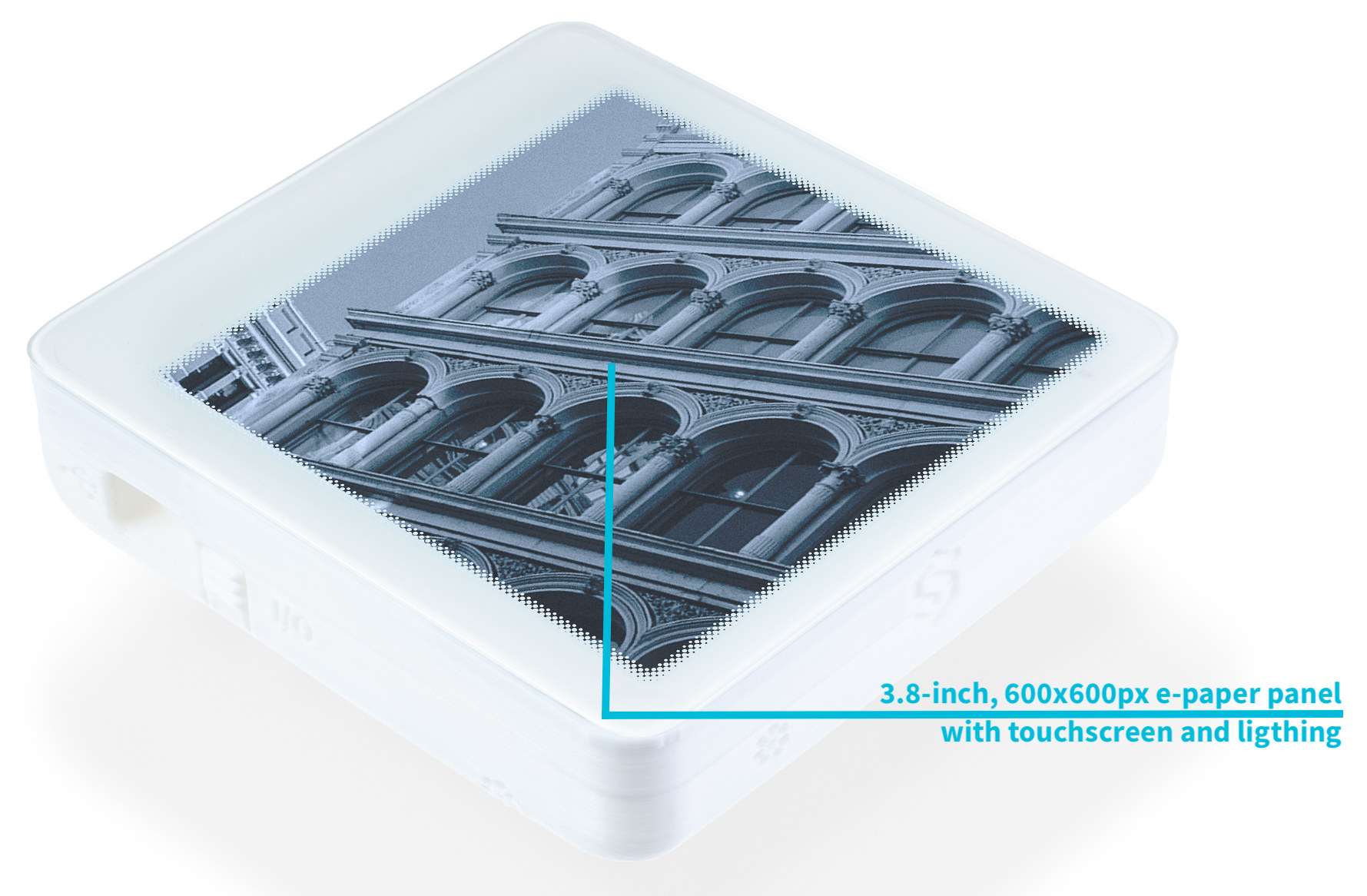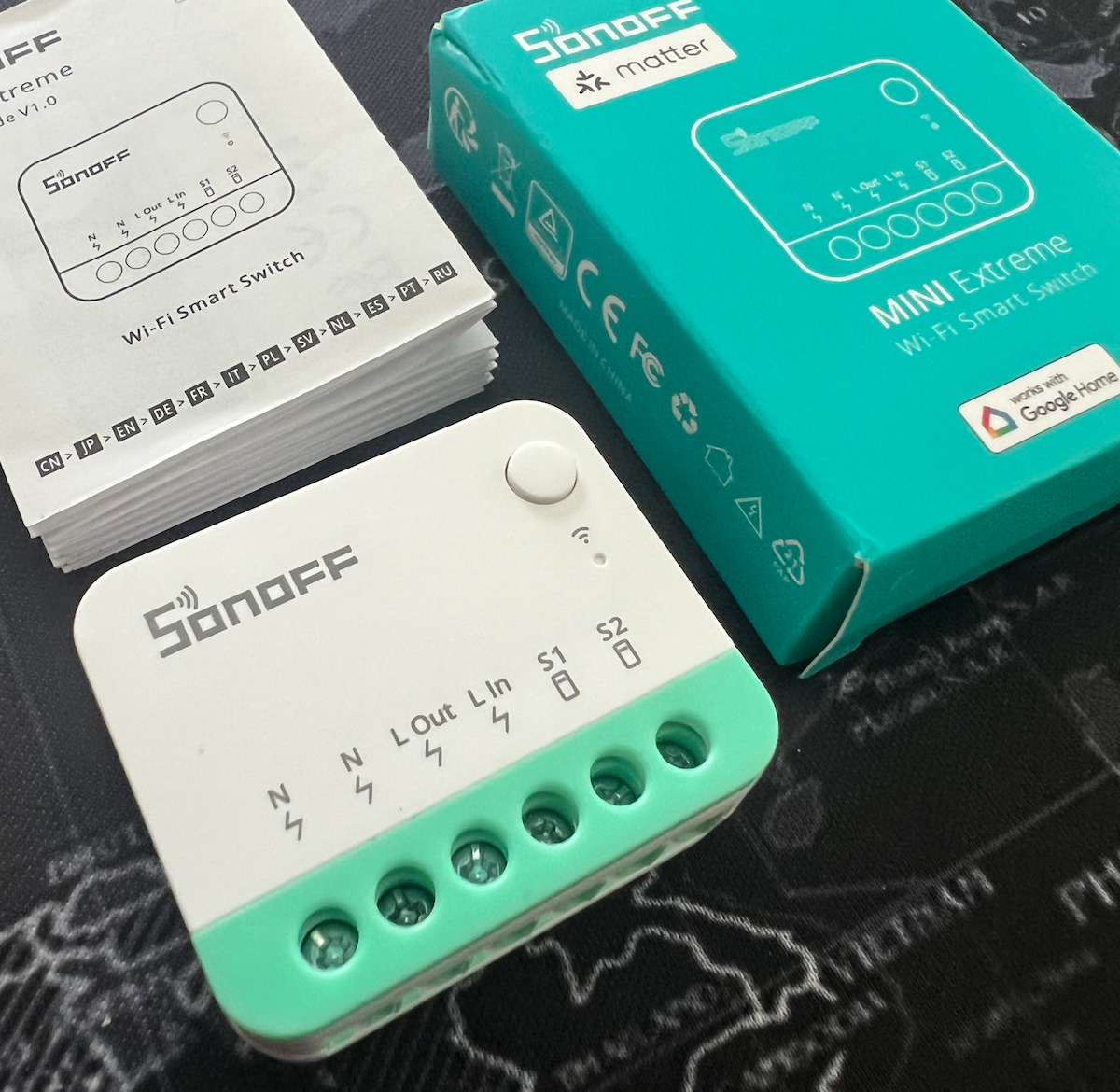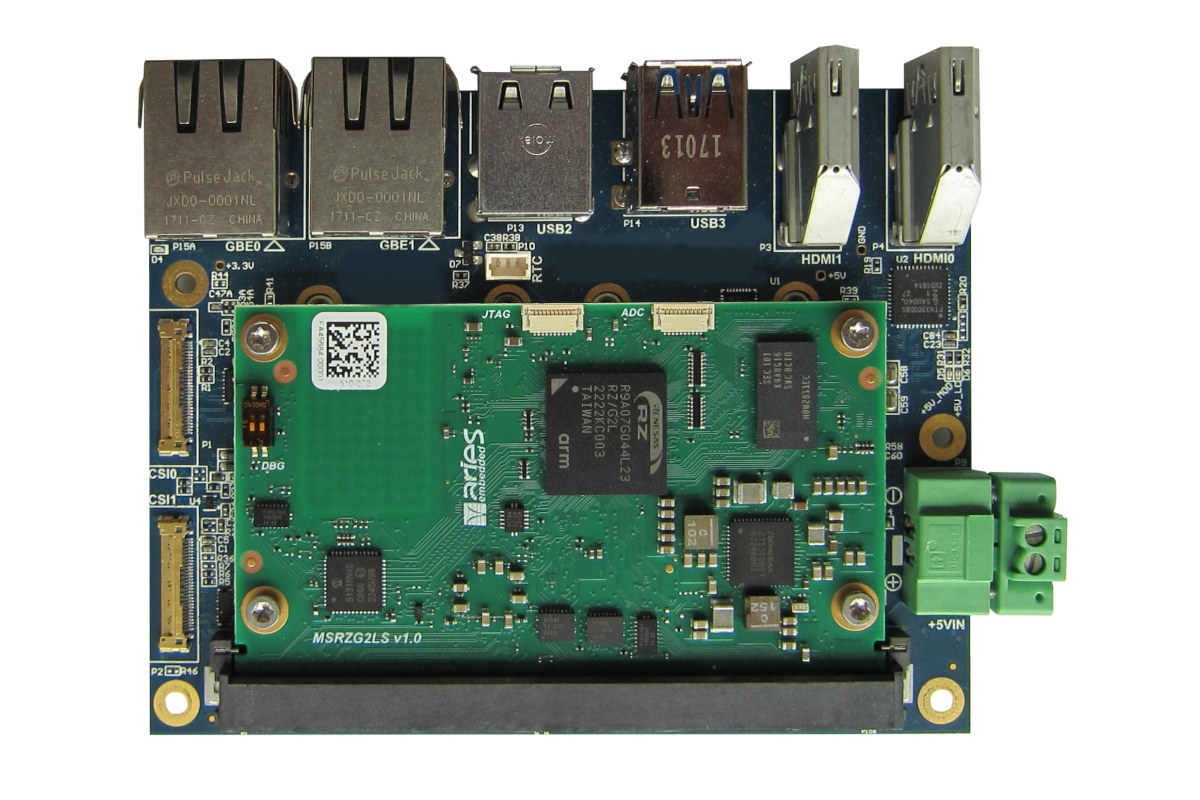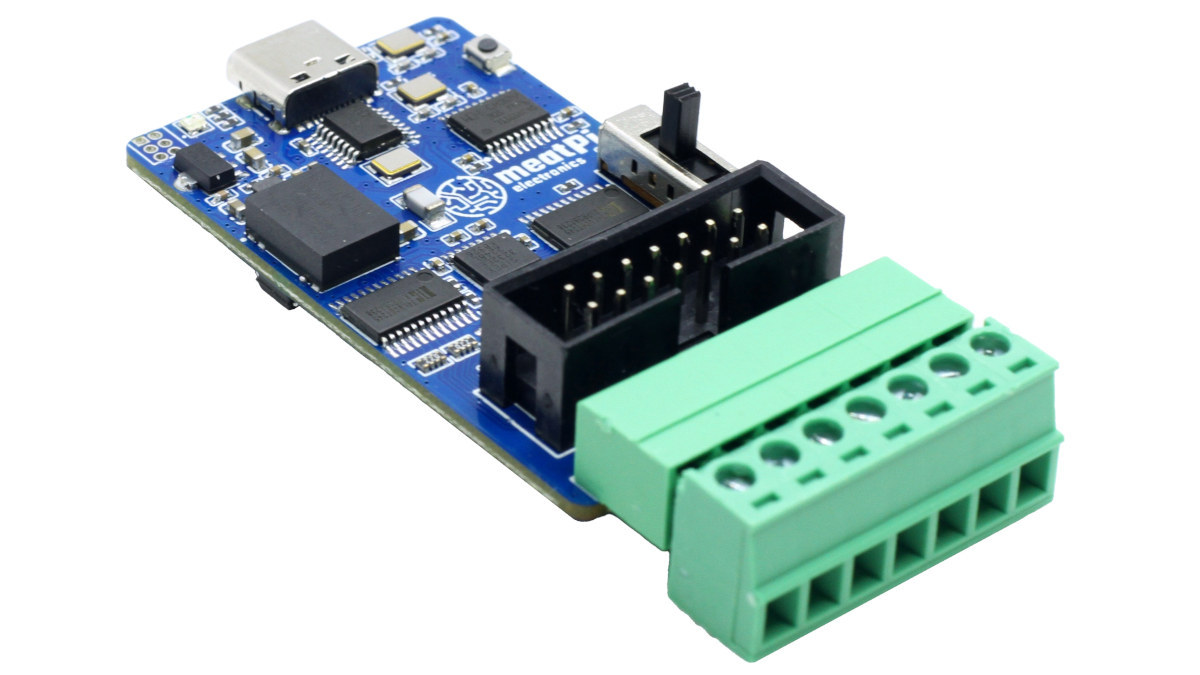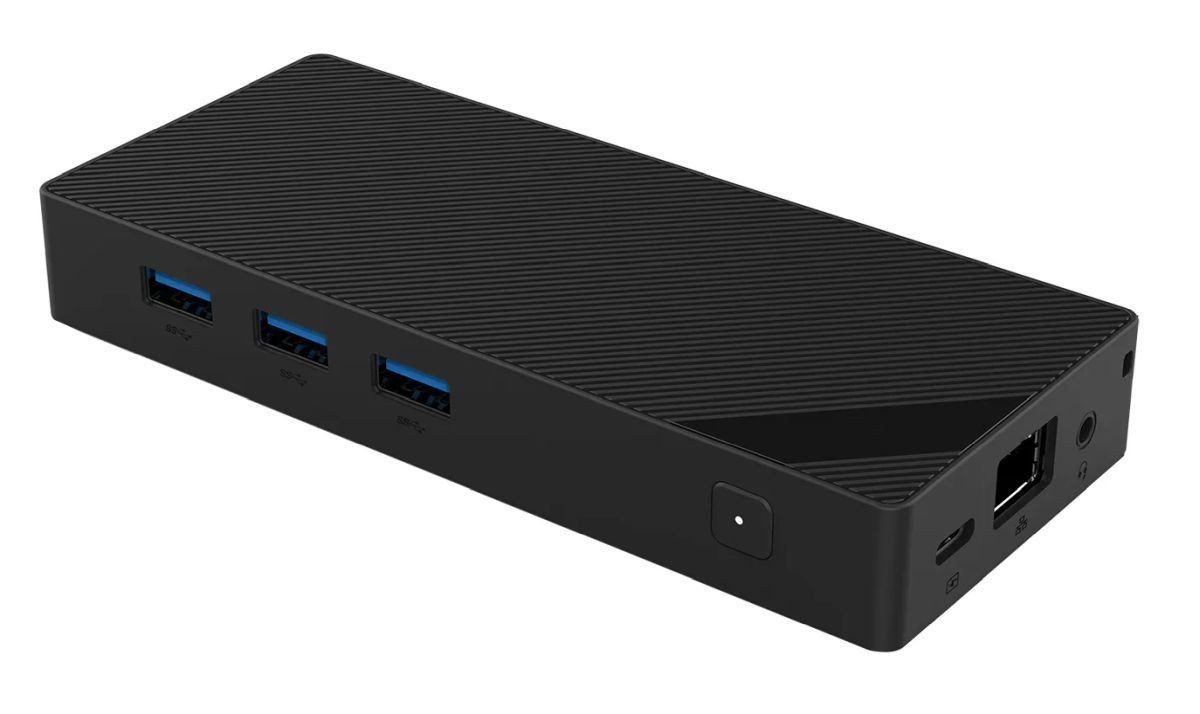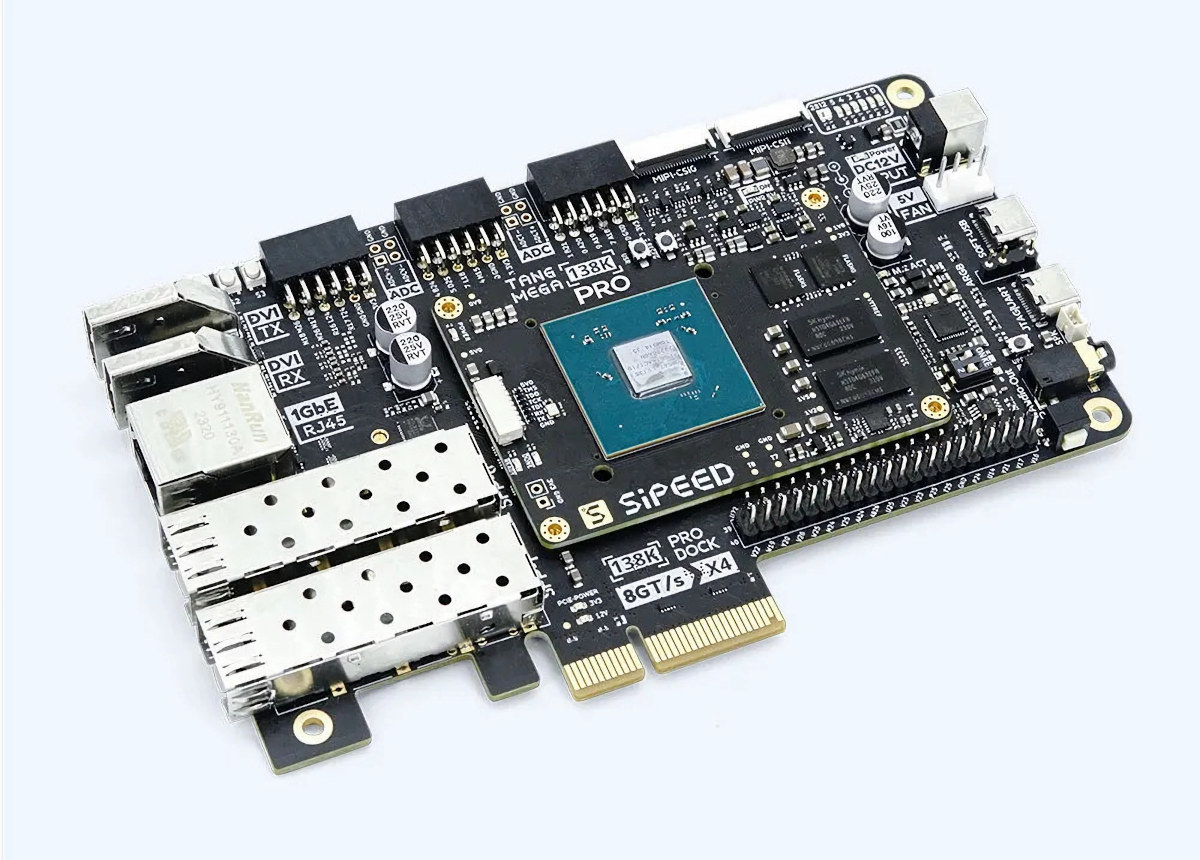GL.iNet Flint2 (also known as GL-MT6000) is a new AX6000 router based on MediaTek MT7986 (Filogic 830) Arm SoC and supporting VPN speeds of up to 900 Mbps using WireGuard and 190 Mbps with OpenVPN. This caught my attention, as I previously covered other GL.iNet routers such as the Spitz AX (GL-X3000NR) and the Beryl AX (GL-MT3000) based on the previously generation Filogic 820 (MT7981B) CPU with claims of (only) 300 Mbps transfer rates with Wireguard, so the new model is supposed to triple the VPN performance. GL.iNet Flint2 (GL-MT6000) specifications: SoC – MediaTek MT7986 (Filogic 830) quad-core Arm Cortex A53 processor @ 2.0 GHz with hardware acceleration engines for Wi-Fi offloading and networking System Memory – 1GB DDR4 Storage – 8GB eMMC flash Networking 2x 2.5 Gbps Ethernet ports 4x Gigabit Ethernet LAN ports 802.11b/g/n/ac/ax WiFi 6 with 4x external Wi-Fi antennas Up to 1,148 Mbps @ 2.4 GHz […]
Azulle’s Byte4 – Customization at Its Finest With 3 Stellar Add-on Modules (Sponsored)
In the ever-evolving world of technology, we often find ourselves at a crossroads between power and flexibility. Striking the perfect balance can be a daunting task, but sometimes innovation comes along to redefine the game. Enter Azulle’s Byte4, a desktop mini PC that reimagines computing by seamlessly integrating three stellar add-on modules: Active Cooling, 4G LTE (AT&T Certified), and Power over Ethernet (POE). As a leading manufacturer of mini PCs and mini PC sticks, Azulle firmly believes that innovation should simplify our lives rather than complicate them. With that in mind, one of our flagship products, the Byte, embodies this philosophy in its modular design, allowing users to tailor their computing experience to their unique needs without the hassle of complicated setups. Active Cooling: A Shield Against the Heat Traditional cooling solutions often come at the cost of space and noise. Unlike the conventional cooling mechanisms that merely whisper their […]
Inkplate 4 TEMPERA ePaper display supports ESPHome, Arduino, and MicroPython (Crowdfunding)
Years after years, Soldered Electronics keeps on churning out new ESP32-powered ePaper displays and the latest model is the Inkplate 4 TEMPERA with a recycled 3.8-inch e-paper touchscreen with 600×600 resolution and plenty of sensors and features for a device of that size. The InkPlate 4 TEMPERA comes with a frontlight, a gyroscope, an accelerometer, temperature, humidity, air quality, and gesture sensors, Wi-Fi and Bluetooth connectivity, a built-in battery, and a low-power operating mode. Inkplate 4 TEMPERA specifications: Wireless module – ESP32-WROVER-E with ESP32 dual-core microcontroller with Wi-Fi 4 & Bluetooth 4.0 connectivity Memory – 8MB PSRAM Storage – 4MB flash PCB antenna Storage – MicroSD card slot Display (ED038TH2) 3.8-inch 3-bit grayscale (black, white, and six shades of gray) ePaper display with 600 x 600 pixels resolution Refresh rate 0.18s partial refresh rate in 1-bit (B&W) mode 0.86s full refresh mode in either 1-bit or 3-bit modes Multi-point touchscreen […]
Review of the first Matter device by SONOFF – MINI Extreme Wi-Fi Smart Switch (MINIR4M)
We have just received the first Matter product from SONOFF for review, which is the Mini Extreme Switch (MINIR4M) model. Its external appearance closely resembles the Mini Extreme Switch Wifi (MINIR4) which we reviewed previously. They have different colors to distinguish between WiFi (Orange) and Matter (Green). In this review, we have experimented with various Smart Home platforms that support Matter, such as Home Assistant, Apple HomeKit, Google Home, and even their own eWeLink app. Let’s see how their operations and features differ to some extent. Quick intro for Matter. We have heard Matter/Thread together in the news. Matter is a control protocol, while Thread is a communication protocol. Both protocols can work together, or separately. Matter can operate on the top of various communication protocols, including WiFi, Ethernet, BLE, or Thread, with subtle differences such as energy efficiency, network, and resiliency. What’s crucial to note is that Matter acts […]
Renesas RZ/G2L and RZ/V2L SMARC 2.1 system-on-modules target HMI and Edge AI applications
ARIES Embedded has recently launched two SMARC-compliant MRZG2LS and MRZV2LS system-on-modules (SoM) powered by respectively a Renesas RZ/G2L dual-core Cortex-A55/M33 microprocessor with Arm Mali-G31 GPU and H.264 video codec (H.264) and a similar Renesas RZ/V2L MPU adding a built-in ‘DRP-AI’ AI accelerator for vision applications. Those are the first SMARC modules from the company and they are well-suited for applications such as entry-class industrial human machine interfaces (HMIs), embedded vision, edge artificial intelligence (edge-AI), real-time control, industrial Ethernet connectivity, and embedded devices with video capabilities. ARIES Embedded MRZG2LS and MRZV2LS key features and specifications: SoC – Renesas RZ/G2L or GZ-V2L with Application CPU – Single or dual Arm Cortex-A55 up to 1.2GHz Real-time core -Arm Cortex-M33 GPU – Arm Mali-G31 VPU – H.264 codec AI accelerator – DRP-AI on Renesas RZ/V2l only (MRZV2L SoM) System Memory – 512MB to 4GB DDR4 RAM Storage – SPI NOR flash, 4GB to 64GB […]
Ollie v2 USB to UART/CAN/RS485/RS232 converter gets USB-C port, plastic enclosure, and more (Crowdfunding)
Ollie v2 is an improved version of the Ollie USB to isolated UART, CAN Bus, RS232, and RS485 converter that gains a USB-C port, a plastic case, the ability to set the voltage from the target board, and various other minor improvements. Like the first version, the Ollie v2 is a portable tool designed for hackers and field engineers that allows them to work with a single device instead of a bunch of USB converters, each handling a single protocol, and isolation makes sure the host, such as a laptop, is protected from high voltages. Ollie V2 specifications: Serial chip – WCH CH344 quad-serial port chip (instead of XR21V1414 in the first design) Host interface – USB Type-C port Isolated interfaces (all with ESD protection) 2x UART ports up to 6 Mbps with 1.8/3.3/5 V or target voltage levels (set by slide switch) CAN 2.0A/B up to 1 Mbps bus […]
ZX05 mini PC with Processor N100 CPU, 12GB RAM goes for $133 and up
ZX05 is another Intel Processor N100 Alder Lake-N mini PC whose main selling points are its PC stick-like size (145 x 62 x 20mm) and its price with the device selling for $132.62 and up on AliExpress with 12GB RAM and an M.2 2280 socket for an NVMe SSD. Despite its dimensions, the pocket-sized PC comes with two HDMI ports, three USB 3.2 Gen 1 ports, gigabit Ethernet, WiFi 5 and Bluetooth 5.2, and an audio jack which should cover most basic computing use cases. ZX05 specifications: SoC – Intel Processor N100 Alder Lake-N quad-core/quad-thread processor @ up to 3.4 GHz (Turbo) with 6MB cache, 24EU Intel HD graphics @ up to 750 MHz; TDP: 6W System Memory – 12GB LPDDR5 soldered-on board Storage – Optional 128GB, 256GB, 512GB, or 1TB NVMe SSD via M.2 2280 socket Video Output – 2x HDMI 2.0 ports up to 4Kp60 Audio – 3.5mm […]
Sipeed Tang Mega 138K Pro Dock features GOWIN GW5AST FPGA + RISC-V SoC
Sipeed has launched another FPGA board part of their Tang family with the Tang Mega 138K Pro Dock powered by a GOWIN GW5AST SoC with 138K logic elements as well as an 800 MHz AE350_SOC RISC-V hardcore unit, and featuring a PCIe 3.0 x4 interface, DVI Rx and Tx, two SFP+ cages, a Gigabit Ethernet RJ45 port, and more. We’ve previously seen companies like AMD (Xilinx) and Microchip produce FPGA SoCs with hard cores such as the Zynq Ultrascale+ family (4x Cortex-A53) or the PolarFire MPSoC (4x 64-bit SiFive U54 RISC-V cores), but it’s the first time I see GOWIN introduce an FPGA + RISC-V SoC, as all the previous parts that came to my attention were FPGA devices. Sipeed Tang Mega 138K Pro Dock specifications: System-on-Module – Sipeed Tang Mega 138K Pro SoC FPGA – GOWIN GW5AST-LV138FPG676A with 138,240 LUT4 1,080 Kb Shadow SRAM (SSRAM) 6,120 Kb Block SRAM […]


